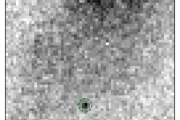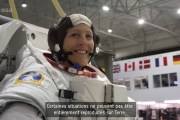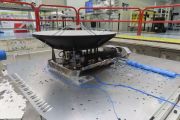
Copernical Team
Russia admits destroying satellite with space missile strike

Russia's space agency said on Tuesday its "main priority" was the safety of the International Space Station's crew, after the US accused Moscow of putting the astronauts under threat with a missile strike.
US officials on Monday denounced Russia for conducting a "dangerous and irresponsible" missile test that blew up one of its own satellites, creating a debris cloud that forced the ISS crew to take evasive action.
The move reignited concerns about a growing arms race in space, encompassing everything from laser weapons to satellites capable of shunting others out of orbit.
In its first comments following the US accusations, Russia's Roscosmos space agency did not deny there had been a missile strike.
How NASA's Curiosity rover is making Mars safer for astronauts

Could lava tubes, caves, or subsurface habitats offer safe refuge for future astronauts on Mars? Scientists with NASA's Curiosity Mars rover team are helping explore questions like that with the Radiation Assessment Detector, or RAD.
Unlike Earth, Mars doesn't have a magnetic field to shield it from the high-energy particles whizzing around in space. That radiation can wreak havoc on human health, and it can seriously compromise the life support systems that Mars astronauts will depend on, as well.
Based on data from Curiosity's RAD, researchers are finding that using natural materials such as the rock and sediment on Mars could offer some protection from this ever-present space radiation.
Webb’s Ariane 5 gains upper stage
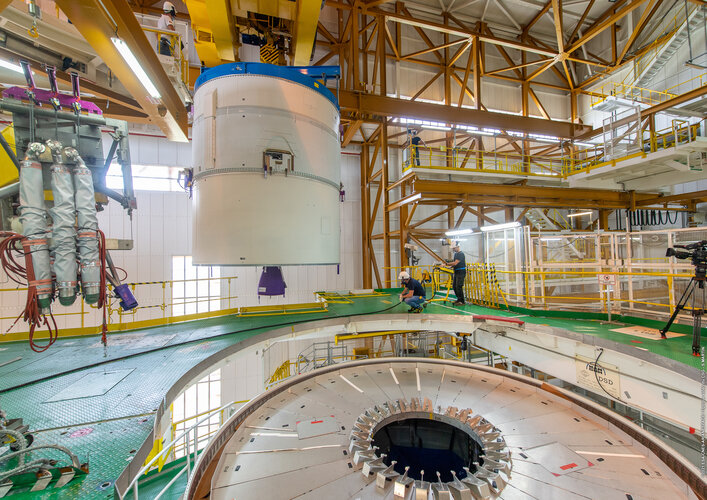 Image:
Webb’s Ariane 5 upper stage was raised vertical in the launch vehicle integration building at Europe’s Spaceport in French Guiana
Image:
Webb’s Ariane 5 upper stage was raised vertical in the launch vehicle integration building at Europe’s Spaceport in French Guiana No US return to the Moon before 2026: audit
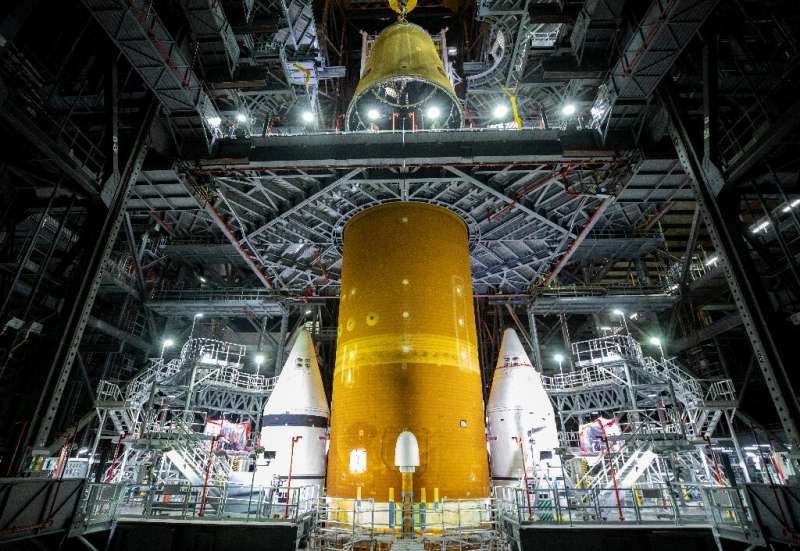
The return of humans to the Moon, already postponed last week by NASA from 2024 to 2025, will actually take place in 2026 "at the earliest", according to a government audit published on Monday.
The Artemis program to return Americans to the Moon is encountering "technical difficulties and delays heightened by the Covid-19 pandemic and weather events," NASA's auditing body, the Office of Inspector General, said in a report.
"NASA's goal to land astronauts on the Moon's South Pole in late 2024 faces multiple significant challenges including major technical risks, an unrealistic development schedule, and lower-than requested funding levels," the report said.
First, the new space suits needed for the mission will not be ready "until May 2025 at the earliest," it said, noting "technical challenges and lack of funding.
ESA uses space to supercharge climate action

ESA is primed to play a crucial role in the revitalised international drive to combat global warming set out at the COP26 climate talks.
Northrop Grumman completes Hypersonic and Ballistic Tracking Space Sensor CDR
Russia seeks to reassure ISS astronauts after missile claims
 Russia's space agency said on Tuesday its "main priority" was the safety of the International Space Station's crew, after the US accused Moscow of putting the astronauts under threat with a missile strike.
US officials on Monday denounced Russia for conducting a "dangerous and irresponsible" missile test that blew up one of its own satellites, creating a debris cloud that forced the ISS cr
Russia's space agency said on Tuesday its "main priority" was the safety of the International Space Station's crew, after the US accused Moscow of putting the astronauts under threat with a missile strike.
US officials on Monday denounced Russia for conducting a "dangerous and irresponsible" missile test that blew up one of its own satellites, creating a debris cloud that forced the ISS cr Russian military admits 'destroyed' satellite during test
 Russia's defence ministry on Tuesday admitted to destroying one of its satellites during a missile test, confirming accusations levied earlier by the United States.
"The Russian defence ministry successfully conducted a test, as a result of which the Russian spacecraft 'Tselina-D', which had been in orbit since 1982, was destroyed," the military said in a statement.
US officials on Monda
Russia's defence ministry on Tuesday admitted to destroying one of its satellites during a missile test, confirming accusations levied earlier by the United States.
"The Russian defence ministry successfully conducted a test, as a result of which the Russian spacecraft 'Tselina-D', which had been in orbit since 1982, was destroyed," the military said in a statement.
US officials on Monda Latest Vega launch paves way for Vega-C
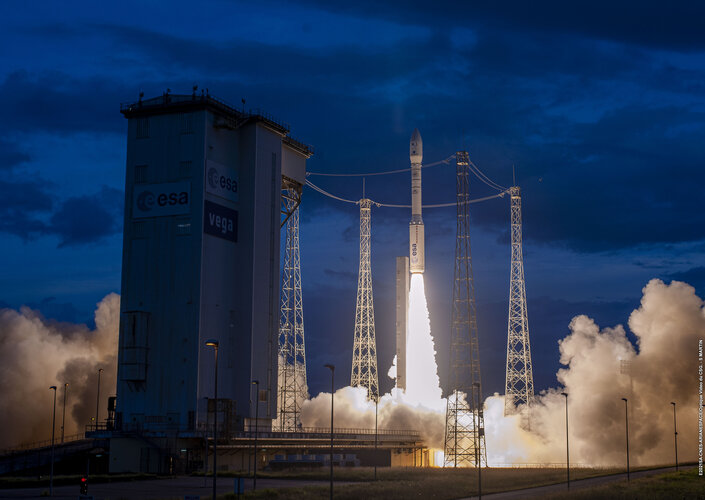
Arianespace announced liftoff of Vega’s twentieth flight from Europe’s Spaceport in French Guiana at 9:27 GMT (10:27 CET; 06:27 local time). Vega delivered three CERES payloads for the French Ministry of the Armed Forces.
Astronauts shelter in space capsules as debris comes close to ISS
 The seven astronauts working aboard the International Space Station were forced to take shelter in their space capsules as a cloud of debris moved toward the station on Monday.
While the debris eventually moved away from the ISS, NASA's mission control in Houston advised the astronauts to seek refuge to avoid a collision that might require them to return to Earth.
The U.S State D
The seven astronauts working aboard the International Space Station were forced to take shelter in their space capsules as a cloud of debris moved toward the station on Monday.
While the debris eventually moved away from the ISS, NASA's mission control in Houston advised the astronauts to seek refuge to avoid a collision that might require them to return to Earth.
The U.S State D 
